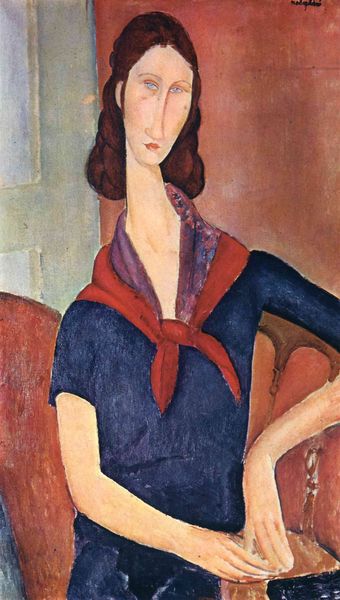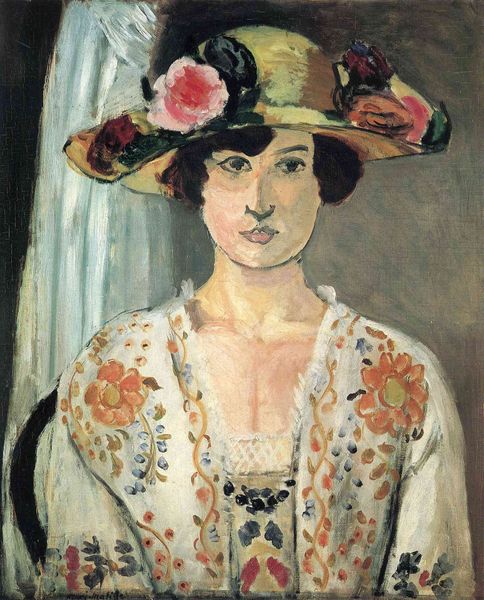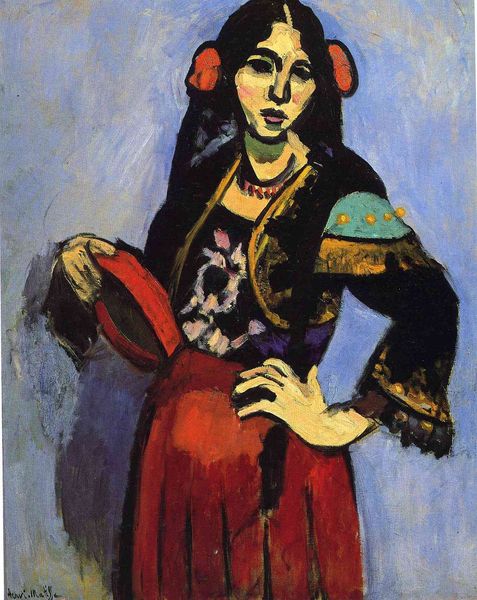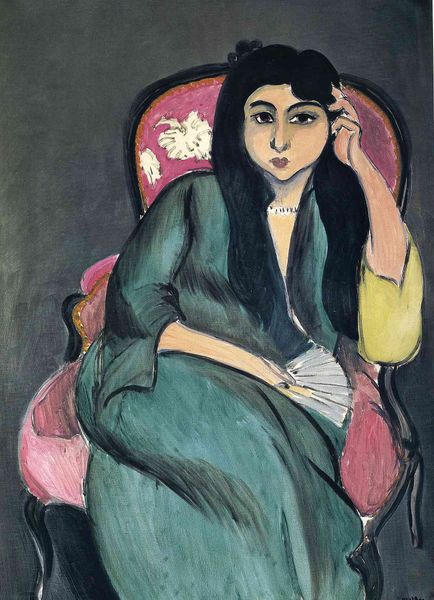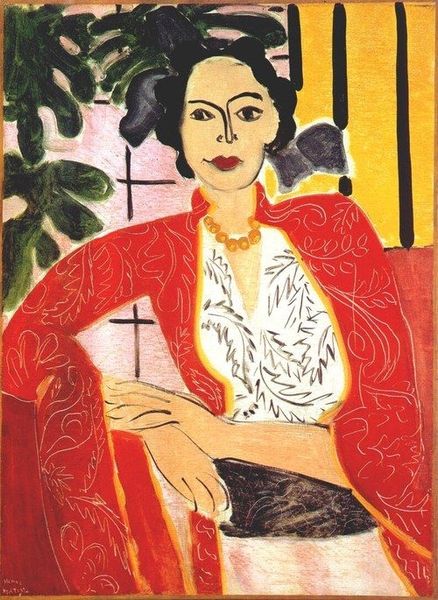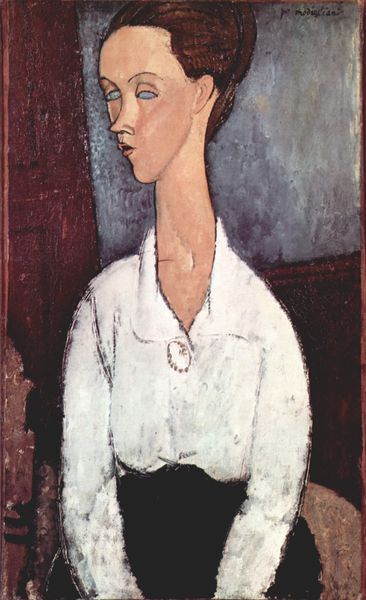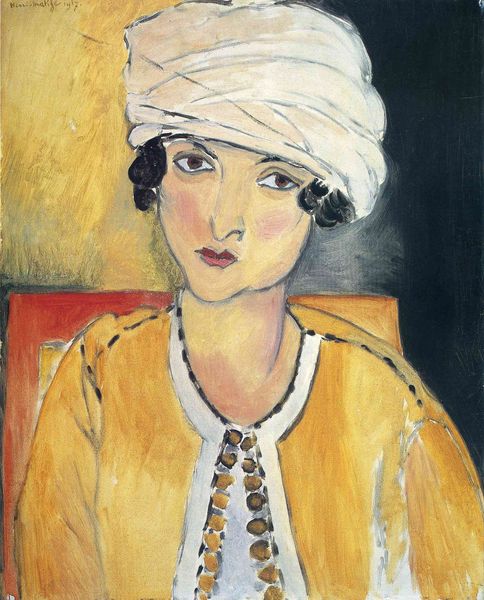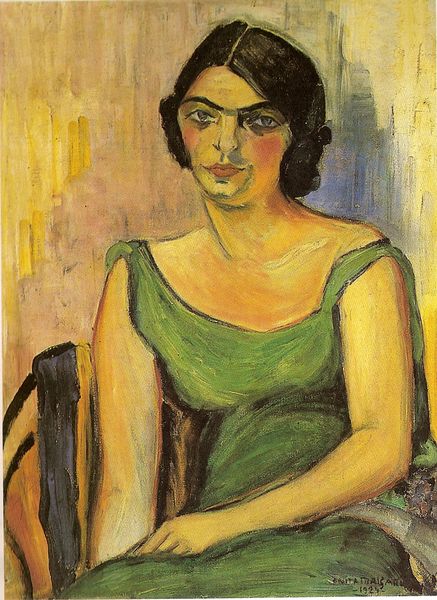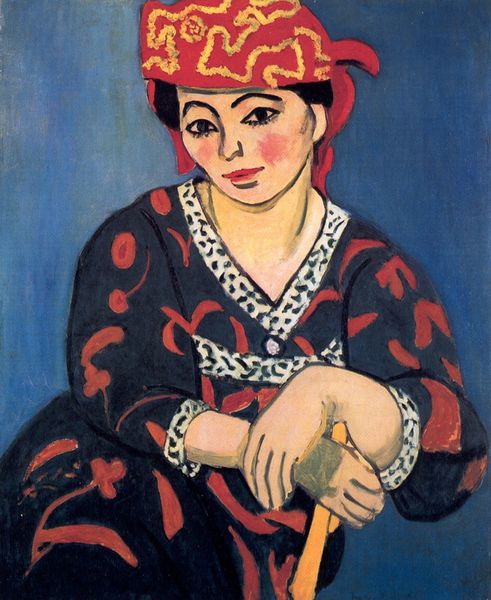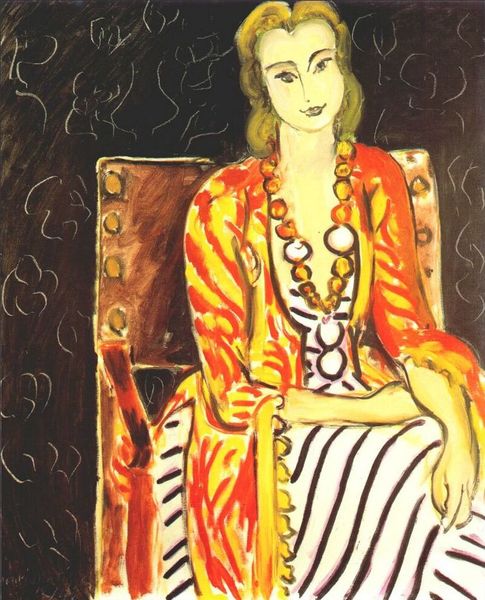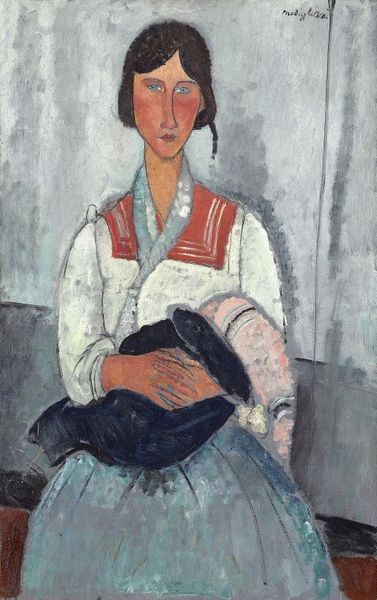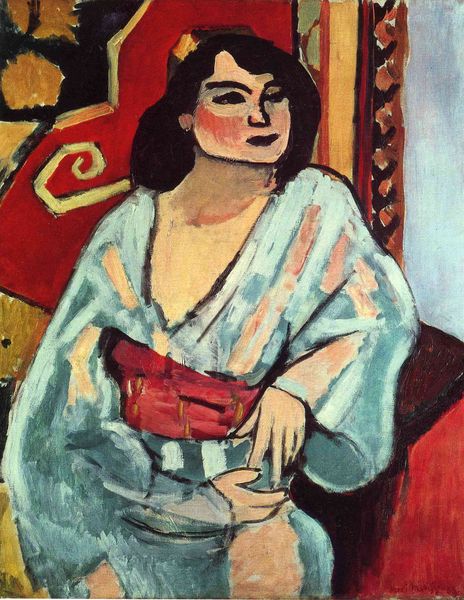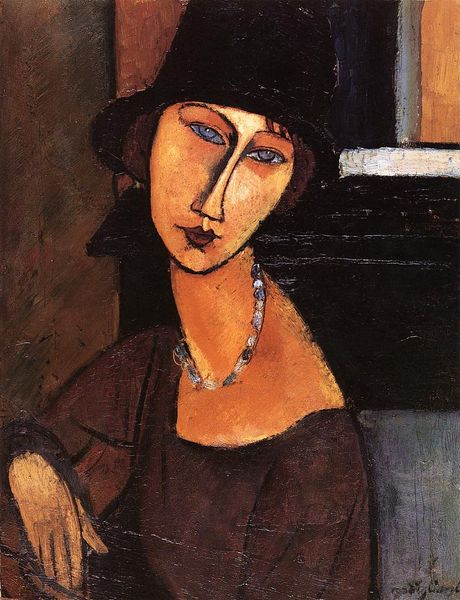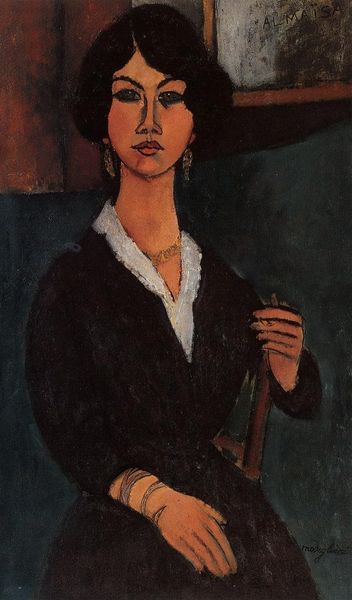
#
portrait
#
portrait reference
#
acrylic on canvas
#
animal portrait
#
animal drawing portrait
#
portrait drawing
#
facial portrait
#
portrait art
#
female-portraits
#
fine art portrait
#
celebrity portrait
#
digital portrait
Copyright: Public domain
Curator: I’m immediately drawn to the stark contrast of colors and textures—the smooth pink of her dress against the rough brushstrokes of the background, the almost careless strokes alongside great attention to detail in Quappi's face. Editor: We’re looking at Max Beckmann’s "Quappi in Pink." This work invites discussions around how gender roles, power, and performativity are articulated within the portrait genre. Beckmann paints his wife with an interesting air of elegance mixed with melancholy. Curator: Right, the "pink" isn’t just a color choice; it dictates the whole painting process. I’m thinking about the physicality of the paint, how Beckmann builds up those surfaces. Did he use layers, and how did that inform the texture, given that it's acrylic? What’s the impact of the pink against that dark background? Editor: Think about interwar Germany, a time when the Weimar Republic struggled against political extremism and economic instability. Quappi, here, takes on the air of a model of femininity in an era struggling to redefine itself: her look, though fashionable, speaks of defiance; there is both allure and distance in her eyes, perhaps even a critical reflection on her social role. The cigarette becomes not just a detail, but a charged symbol of freedom and risk in a world quickly shifting. Curator: I see that interplay, the balance between what's chosen to be foregrounded. Is Beckmann trying to question modes of material culture, consumerism and how those are shaped in Weimar Germany? Does Quappi embody certain trends and expectations, or is the medium being deployed here as a form of resistance? Editor: Definitely the former and latter—Beckmann’s expressive style does, to my eyes, mirror an age wrestling with its identity, portraying Quappi in a space between empowerment and alienation. The careful brushwork of the face against the stark angularity of the body brings forth many possible readings. Curator: So, to conclude, "Quappi in Pink" is, in many ways, a perfect illustration of art not just capturing a subject, but revealing the cultural moment and revealing a set of complex choices of its production, reflecting an ever more complicated history. Editor: Indeed, “Quappi in Pink” invites a continued re-evaluation of history and cultural understanding through artistic creation.
Comments
No comments
Be the first to comment and join the conversation on the ultimate creative platform.
